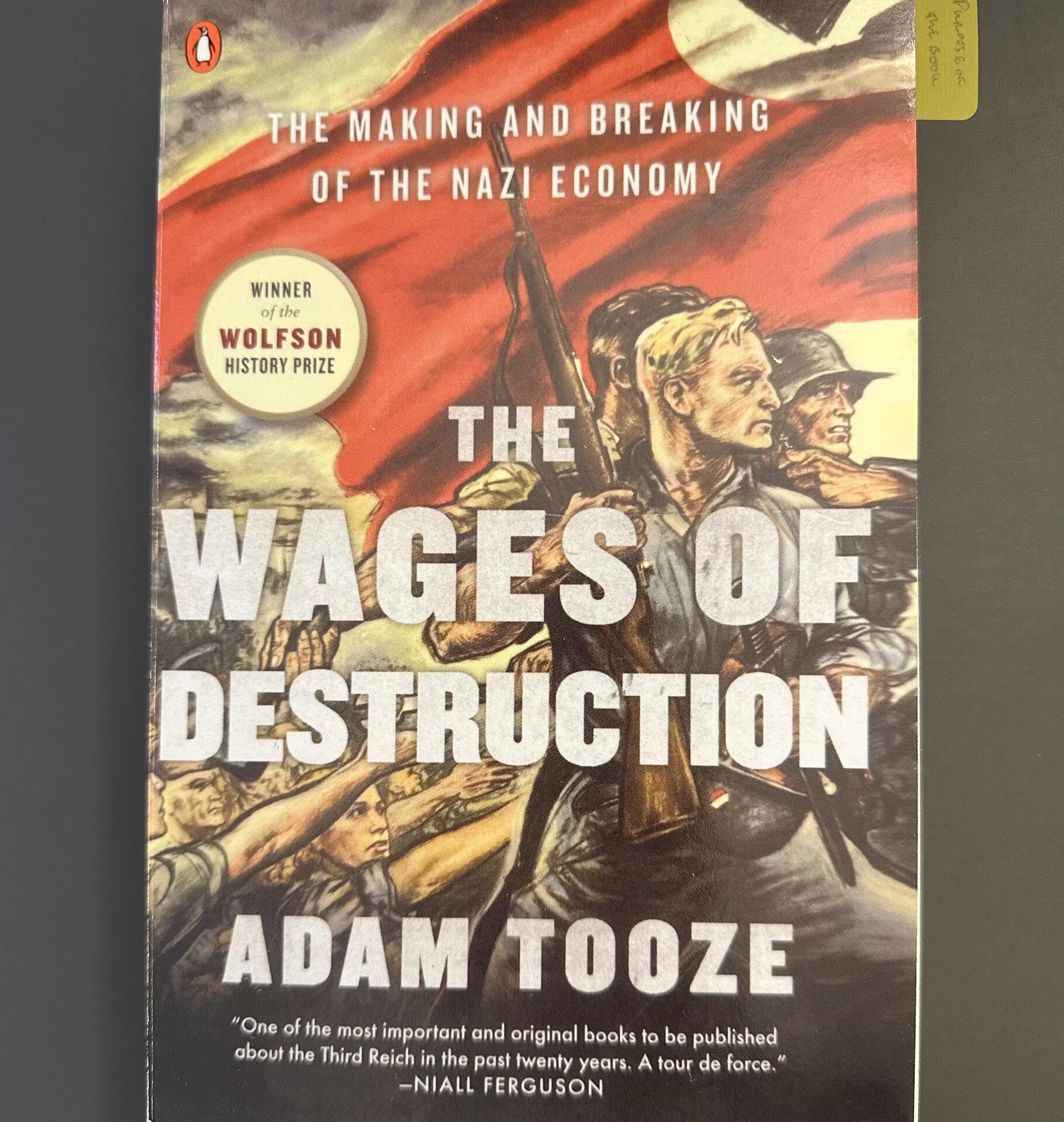steve on Nostr: “The Wages of Destruction” by Adam Tooze ⭐️⭐️⭐️⭐️ There is a ...
“The Wages of Destruction” by Adam Tooze
⭐️⭐️⭐️⭐️
There is a false perception that the industrial base that propelled the Nazi war machine was the pinnacle of efficiency and output. Tooze, a economic historian with Columbia, dispels this myth (among others) in this analysis of the German economy before and through WWII. In doing so, Tooze shows that the Nazi’s were doomed to fail as early 1936. Their economy simply could never support the type of mobilization required to challenge the economic output of the Allies. This book serves as a salient reminder that a nation’s economy is the fungible lifeblood for its other instruments of power—military or otherwise. Simply put, Germany’s engine could never support the conquering of Europe, if faced with opposition. Tooze also highlights how Nazi racist ideology colored their logic to the extent it appeared irrational to on-lookers. As flawed (and heinous) as Hitler’s ideology was, he was nonetheless making rational choices when viewed through his own cognitive biases. It just so happens that those flaws led to genocide and Germany’s ultimate defeat in the war. This book was weighty in its analysis and goals, but handily delivers on its promises. It gets a strong recommendation for anyone looking for a more nuanced understanding of the European front in WWII and how our ideas can shape our perceptions.
⭐️⭐️⭐️⭐️
There is a false perception that the industrial base that propelled the Nazi war machine was the pinnacle of efficiency and output. Tooze, a economic historian with Columbia, dispels this myth (among others) in this analysis of the German economy before and through WWII. In doing so, Tooze shows that the Nazi’s were doomed to fail as early 1936. Their economy simply could never support the type of mobilization required to challenge the economic output of the Allies. This book serves as a salient reminder that a nation’s economy is the fungible lifeblood for its other instruments of power—military or otherwise. Simply put, Germany’s engine could never support the conquering of Europe, if faced with opposition. Tooze also highlights how Nazi racist ideology colored their logic to the extent it appeared irrational to on-lookers. As flawed (and heinous) as Hitler’s ideology was, he was nonetheless making rational choices when viewed through his own cognitive biases. It just so happens that those flaws led to genocide and Germany’s ultimate defeat in the war. This book was weighty in its analysis and goals, but handily delivers on its promises. It gets a strong recommendation for anyone looking for a more nuanced understanding of the European front in WWII and how our ideas can shape our perceptions.

